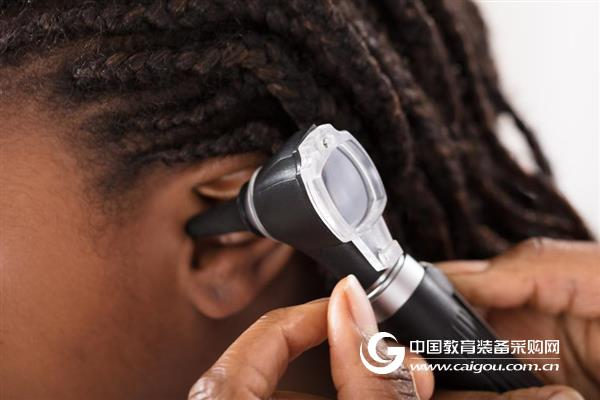Are you really allergic to penicillin? Maybe not
Guide
Up to 10% of people were told or claimed to be allergic to penicillin, but after an allergy test, more than 90% of them were not allergic to the drug.

Whenever a doctor asks if you are allergic to drugs, you may be allergic to penicillin, which is the most common drug allergy. You don't even remember if you have ever tested penicillin allergy, but your parents told you that they are definitely not wrong.
A study published in the July 3 issue of Pediatrics said that unless your symptoms are particularly pronounced, you may not be allergic to penicillin. The researchers tested children and adults who were allergic to penicillin and found that their allergic symptoms were relatively mild and most people were well tolerated by the drug.
Penicillin is the first antibiotic found in humans. It and other members of the penicillin family, such as amoxicillin, are still the treatment of choice for a variety of bacterial infections. However, once people are allergic to penicillin – previous studies have shown that 5% to 20% of people are considered to be allergic to this drug – doctors will open a second option, broad-spectrum antibiotics. This kind of spectroscopic antibiotics is like using a sledgehammer to fight flies when treating otitis caused by common bacteria.
Broad-spectrum antibiotics increase the risk of side effects such as diarrhea and drug resistance. More importantly, these broad-spectrum antibiotics are more expensive than regular penicillin or amoxicillin.
The son of Dr. David Vyles, the first author of the article and the pediatric emergency attending physician at the Wisconsin Medical School in the United States, developed a rash after taking amoxicillin at the age of two. His pediatrician concluded that he was allergic to penicillin. After his son’s ear infection, the doctor prescribed a broad-spectrum antibiotic instead of amoxicillin. Vyles said he had to pay more than $100 for broad-spectrum antibiotics. His daughter also had a rash 4 days after taking amoxicillin, and her pediatrician also thought she was allergic to penicillin. Afterwards, Vyles proved that his son and daughter's doctors were wrong and they were not allergic to penicillin.
These experiences prompted Dr. Vyles to think and investigate. He and the team analyzed the questionnaires of nearly 600 parents (parents of children aged 4-18 years) who took their children to the urban pediatric emergency department in the past 19 months.
The questions in the questionnaire included the age at which the child was diagnosed with penicillin allergy, why the prescription was prescribed, the symptoms of the allergic reaction, the length of time after the first dose, and whether the parents, the doctor, or both were diagnosed with allergies. The questionnaire also lists 17 symptoms, ranging from rashes to swollen throats, and asks parents to check for symptoms that occur in children after taking penicillin.
Before conducting the questionnaire, the researchers consulted a pediatric allergy specialist who learned that high-risk symptoms of penicillin allergy include swelling of the face, lips or throat, while low-risk symptoms include rash, itching or urticaria.
The survey found that 75% of children had experienced low-risk symptoms of penicillin allergy. The researchers also provided penicillin allergy tests for 100 of the children. The penicillin allergy test consists of three parts, a skin test, injection of a small amount of penicillin and oral administration.
It was found that among the 100 children tested, no allergic to penicillin was found.
In a related study published in the April issue of Emergency Medicine Australasia, Sydney researchers conducted three allergy tests on 100 adult emergency patients who reported allergy to penicillin. The researchers did not screen patients beforehand to determine if their allergic symptoms were high or low. However, they ruled out patients with severe, life-threatening allergic reactions after taking penicillin. Of the 100 patients who participated in the test, the researchers found that 81 patients were actually not allergic to penicillin.
Why do people think they are allergic to penicillin, although they are actually not allergic?
Vyles believes that it may be related to the inaccurate diagnosis of penicillin allergy. In his study, only 100 children in the 100 children tested showed a so-called allergic reaction. In most cases, doctors diagnose penicillin allergy based on what parents tell them. It may also be because everyone thinks that penicillin allergy is hereditary, and many parents are allergic to penicillin, so they think their children are the same.
Dr. Stephen Eppes, deputy director of pediatrics at the Christian Health and Sanitation System in Wilmington, Texas, explained: "Many infections are associated with a rash, if a child is resistant to penicillin for other reasons or for other reasons. With viral treatment, the rash may be incorrectly attributed to penicillin allergy.
In addition, because the three-pronged standard test for penicillin allergy takes about three hours to complete, many people are reluctant to accept it.
Shanghai Chuangsai Technology has excellent performance, interleukin cytokines, fetal bovine serum, electrophoresis equipment scientific instruments, raw material drug standards, chemical reagents, cell culture consumables, Shanghai Chuangsai, mass products special promotions, welcome to inquire!
Tarte Jelly Glaze,Tropic Lip Glazese,Velvet Lip Glaze,Glaze Lip Gloss
Hangzhou Shibode Technology Co., Ltd. , https://www.inblooming88.com